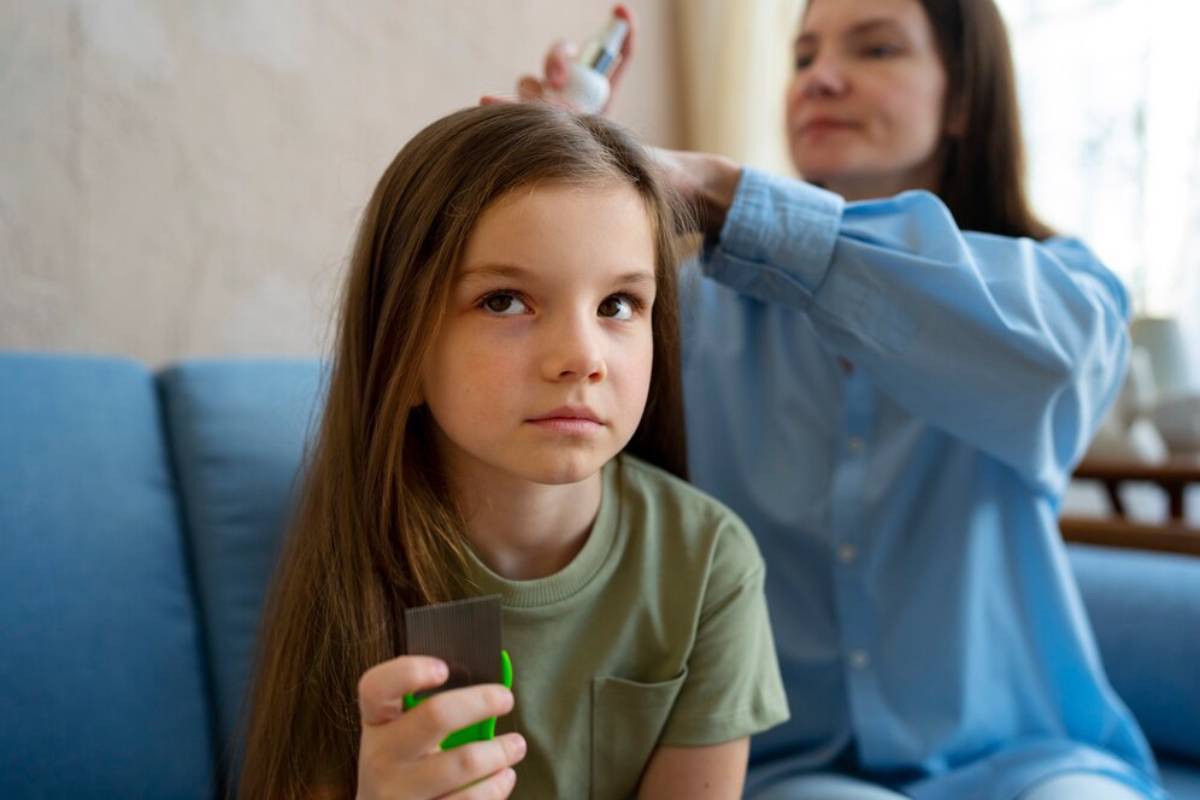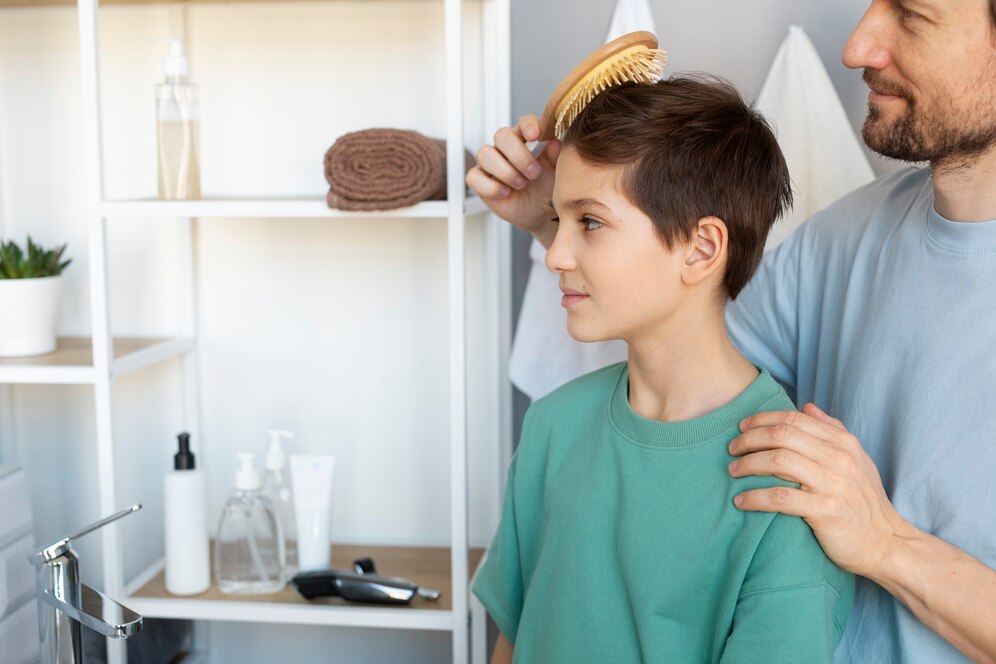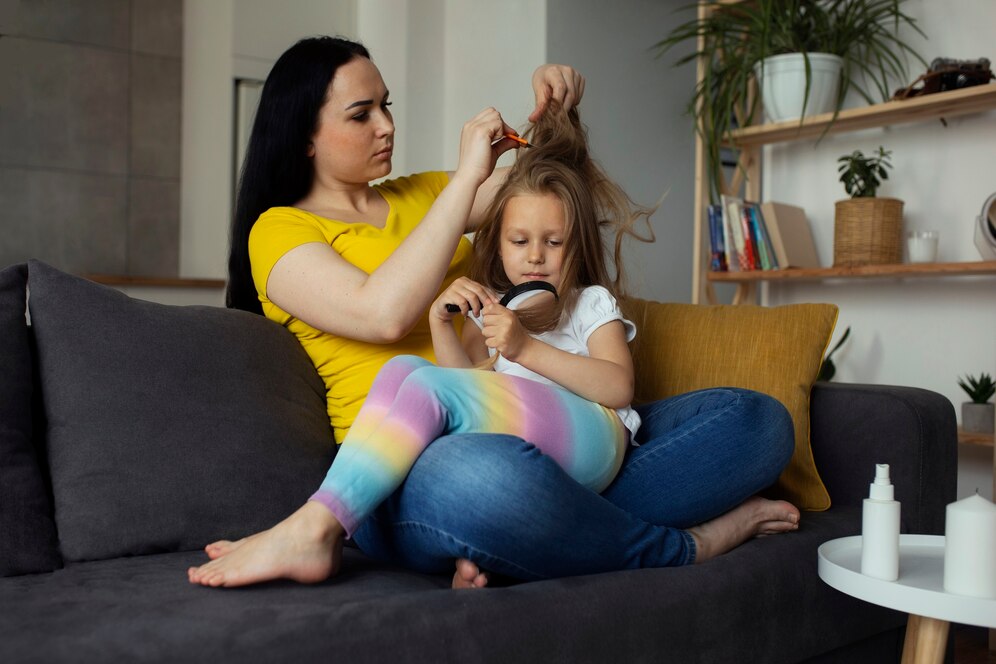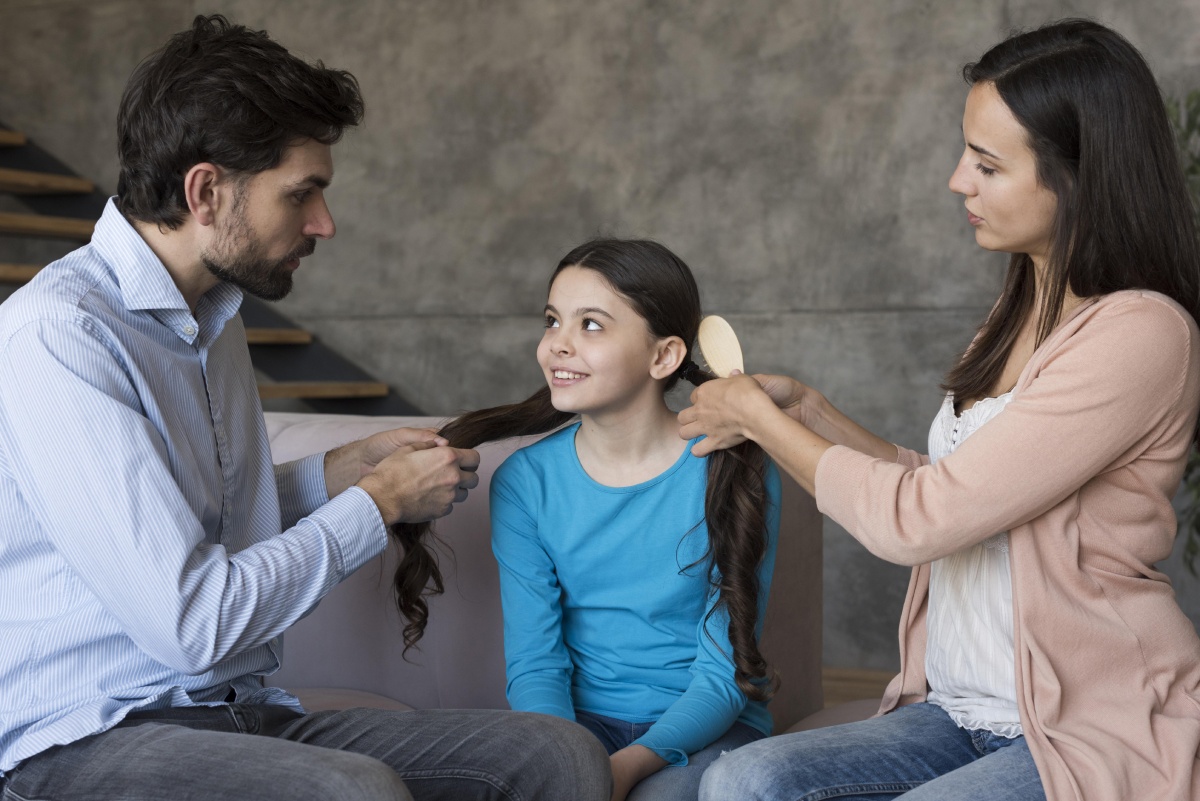
Is Early Puberty Normal? Understanding Precocious Puberty
When Growing Up Comes Too Soon
It often starts with a simple observation. Perhaps your eight-year-old daughter develops breast buds, or your son suddenly sprouts pubic hair at just nine. You pause, confused — is this normal? Or is it too early?
The reality is, puberty doesn’t always follow a textbook timeline. While many children begin developing during their early teens, a growing number experience early hormonal changes — a phenomenon known as precocious puberty.
In this article, we’ll explore:
- What is precocious puberty is
- Common early puberty symptoms
- What causes the early onset of puberty
- When to seek medical help
- How you can support your child emotionally and physically
Let’s dive into the facts and stories behind a topic that affects more families than you might realise — but is rarely talked about openly.
What Is Precocious Puberty?
A Quick Definition
Precocious puberty refers to the onset of puberty before the age of 8 in girls and before age 9 in boys. It involves the same physical and hormonal changes as typical puberty, just much earlier than expected.
The Stats
According to the NHS:
- Girls are far more likely than boys to experience early puberty.
- For every 10 children diagnosed, 9 are girls.
- In some cases, it may be completely harmless. In others, it could point to underlying medical concerns.
Recognising Early Puberty Symptoms

Here’s how to tell if your child may be entering puberty too early.
For Girls
- Breast development before age 8
- Growth of pubic or underarm hair
- Body odour
- Onset of menstruation is unusually early (before age 9)
- Sudden growth in height
- Mood swings or emotional shifts
For Boys
- Enlarged testicles or penis before age 9
- Development of pubic or underarm hair
- Facial hair (especially the upper lip)
- Voice deepening
- Rapid growth
- Acne or oily skin
If you observe these signs and your child falls under the age range mentioned, it’s time to consult a paediatrician or paediatric endocrinologist.
What Causes Precocious Puberty?
Central Precocious Puberty (CPP)
This is the most common type. It occurs when the brain starts producing gonadotropin-releasing hormone (Gnrh) earlier than it should, which triggers the release of oestrogen or testosterone.
Causes may include:
- No known trigger (most common — “idiopathic”)
- Brain tumours (rare)
- Trauma or surgery
- Certain infections (like meningitis)
- Genetic mutations
Peripheral Precocious Puberty
This is far less common and occurs when hormones are produced independently of brain signals.
Potential triggers:
- Ovarian cysts or tumours in girls
- Testicular tumours in boys
- Exposure to external sources of oestrogen or testosterone (e.g., creams or supplements)
Risk Factors
- Obesity: Higher body fat can increase oestrogen levels.
- Family history: Especially in mothers who experienced early menstruation.
- Environmental exposure: Certain plastics or hormones in food may play a role (research ongoing).
- Adoption or early life trauma: Stress and change in caregiving have been linked to earlier onset.
Is Early Puberty Always a Concern?
Some children develop early for reasons that are perfectly benign. However, precocious puberty can carry physical, emotional, and social consequences, including.
1. Shorter Adult Height
Children may grow quickly at first, but their growth plates may fuse earlier, resulting in below-average final height.
2. Emotional Struggles
Children undergoing puberty early may:
- Feel isolated or confused
- Be teased by peers
- Develop anxiety or low self-esteem
A 7-year-old girl with breast development might avoid sports or swimming due to embarrassment.
3. Social and Safety Concerns
Young girls who look older than they are may attract unwanted attention. Boys may behave more aggressively due to early testosterone surges.
When Should You See a Doctor?
Red Flags to Watch For
- Any signs of puberty before age 8 in girls or 9 in boys
- Sudden and rapid growth spurts
- Emotional distress or behavioural changes
- Girls starting their periods before age 9
Diagnostic Process
Doctors may recommend:
- A physical exam
- Blood tests to check hormone levels
- X-rays to assess bone age
- MRI scans, in some cases, to rule out brain abnormalities
If diagnosed, the cause will determine the treatment plan.
Treatment Options for Precocious Puberty

The most common treatment is:
GnRH Analog Therapy
This is a monthly injection that pauses puberty by stopping the release of hormones.
It allows:
- Continued childhood growth
- Emotional and cognitive maturity to catch up
- Reversal of physical changes in some cases
Other treatments depend on the cause. For example:
- Surgery may be needed for hormone-producing tumours.
- If caused by external hormone exposure, removing the source is often enough.
Helping Your Child Cope: Emotional and Practical Tips
Puberty is tough enough without having to go through it too soon. Here’s how you can support your child on a personal level.
1. Open the Lines of Communication
Explain what’s happening in age-appropriate terms: “Your body is growing a bit faster than your friends’, but everything you’re going through is completely normal — just earlier.”
Encourage questions and avoid making the topic taboo.
2. Validate Their Emotions
Your child may:
- Feel embarrassed in the changing rooms
- Be confused about hair growth or body odour
- Worry that they’re “weird” or “different”
Let them know:
- These feelings are valid
- They’re not alone
- You’re always available to talk
3. Equip Them With Tools
Practical prep goes a long way. For example:
- Create a puberty kit: deodorant, pantyliners, wipes, a discreet pouch
- Use books: like “What’s Going on Down There?” or “Celebrate Your Body”
- Encourage journaling to help express thoughts
4. Speak With Teachers or Caregivers
Your child may need:
- Bathroom breaks during class
- Privacy in PE
- Extra emotional support
Let teachers know, especially if your child is shy or withdrawn.
Anecdotes: Real-World Stories of Early Puberty
The Unplanned Period
“My daughter got her period at 8. She was terrified, thinking something was wrong. I hadn’t talked to her about it yet because I thought I had more time. Now I tell every parent: talk sooner than you think you need to.”
Feeling “Different”
“My son started getting pimples and mood swings at 9. He couldn’t understand why he was angry all the time. Once we explained that it was his body’s way of adjusting, he started recognising the signs and telling us when he needed space.”
Conclusion: Growing Up Shouldn’t Be a Race

Puberty is a journey — not a finish line. And when it starts too early, it’s understandable to feel unprepared as a parent.
But here’s the good news: With the right knowledge, compassionate guidance, and professional support, your child can navigate early changes with confidence — and so can you.
Key Takeaways:
- Precocious puberty begins before age 8 in girls and 9 in boys.
- It can be caused by brain signals, hormone exposure, or health conditions.
- Early diagnosis helps avoid long-term complications.
- Emotional support and open dialogue are just as important as medical care.
We’d Love to Hear From You
Have you or someone you know dealt with early puberty and its indicators Share your experience or ask a question in the comments below! Subscribe for more expert-led guides on parenting through puberty. Forward this to a friend — because no parent should have to figure this out alone.


